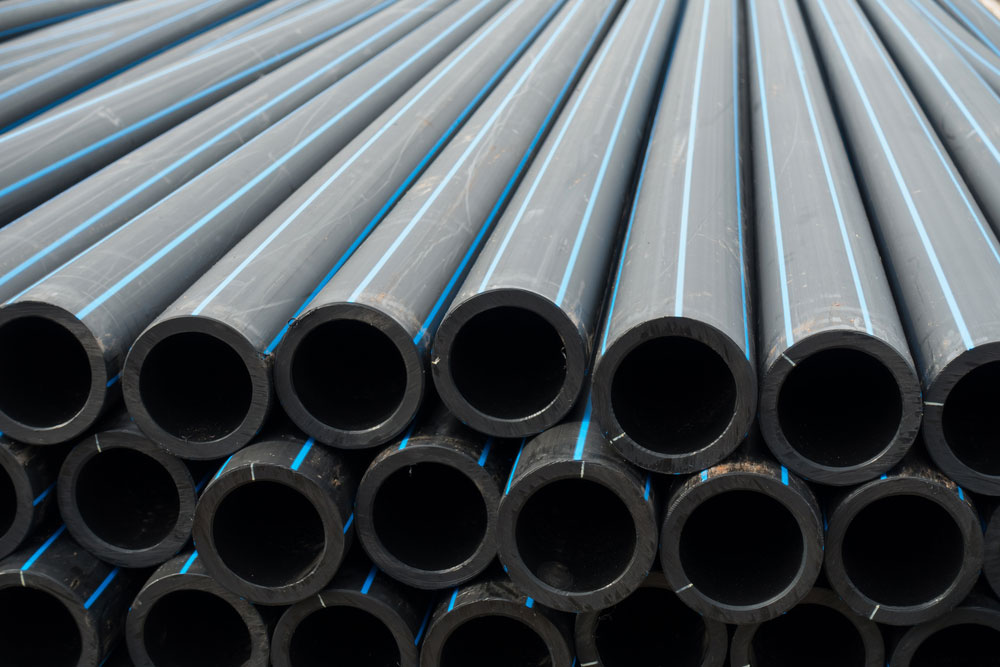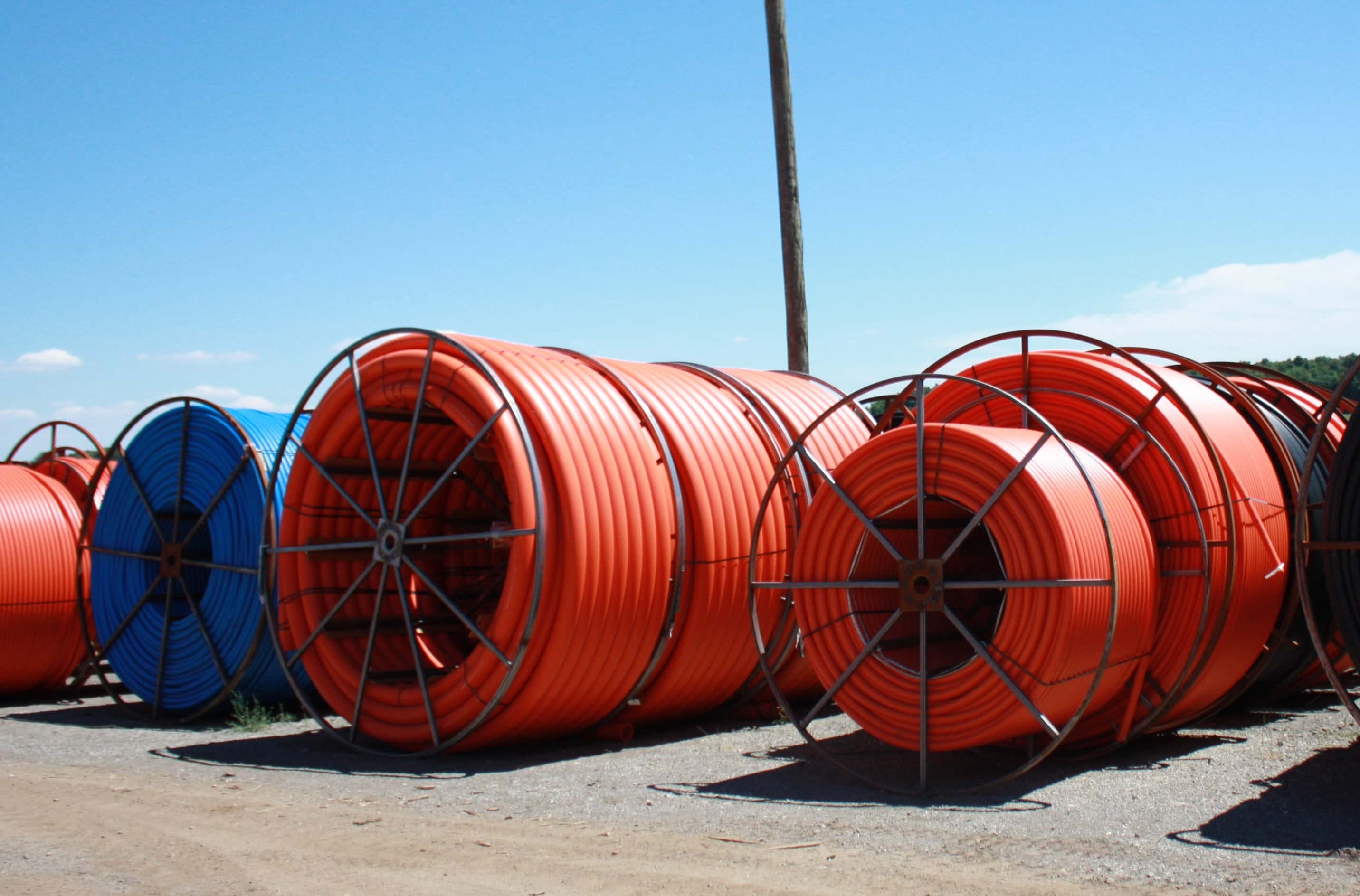Understanding the Trick Advantages of HDPE Pipe for Water and Wastewater Management
The usage of HDPE pipe in water and wastewater monitoring presents numerous benefits that merit consideration. Its remarkable longevity and lengthy lifespan make it a recommended option for lots of tasks. Furthermore, the material's resistance to corrosion and chemical damage boosts its reliability in different environments. The advantages expand past just longevity and resistance. American Plastics HDPE Pipe Manufacturing. Exploring its cost-effectiveness and ecological effect exposes a lot more compelling reasons for its extensive adoption in modern infrastructure
Extraordinary Sturdiness and Longevity

HDPE pipe attracts attention for its extraordinary resilience and durability, making it a preferred selection in water monitoring systems. Constructed from high-density polyethylene, these pipelines can endure substantial stress and stress and anxiety, guaranteeing trusted efficiency in time. Their robust nature allows them to endure extreme environmental problems, consisting of temperature changes and dirt movements, which can cause various other materials to fail.
The lifespan of HDPE pipes typically goes beyond 50 years, providing an affordable service for districts and industries alike. In addition, the product's light-weight residential or commercial properties simplify setup, lowering labor expenses and durations. This toughness minimizes the requirement for regular repair work or replacements, better boosting its financial appeal.
In water management applications, the dependability of HDPE pipelines implies less disruptions and boosted service continuity, making them essential to lasting facilities growth. The mix of resilience and long life solidifies HDPE's role as a keystone in efficient water administration remedies.

Resistance to Rust and Chemical Damage
While lots of products succumb to corrosion and chemical damage with time, HDPE pipelines exhibit remarkable resistance, making them suitable for different water monitoring applications. This durability stems from the molecular framework of high-density polyethylene, which is inherently non-reactive and does not rust like metals or deteriorate from exposure to harsh chemicals. As an outcome, HDPE is very reliable in environments with aggressive substances, such as wastewater systems that may consist of acids, bases, and organic solvents.
In addition, HDPE pipelines can stand up to ecological variables such as soil acidity and saline problems, further boosting their viability for varied applications (Pipe Supplier American Plastics Midland). Their capacity to maintain structural integrity gradually minimizes the risk of leakages and failings, which is important in making sure the security and reliability of water circulation and wastewater monitoring systems. The resistance to deterioration and chemical damages markedly adds to the general effectiveness and longevity of HDPE piping remedies.
Cost-Effectiveness and Financial Advantages
When taking into consideration the monetary implications of water management systems, the cost-effectiveness of HDPE pipelines becomes noticeable. These pipelines provide lower installation and maintenance costs compared to typical materials like steel or concrete. Their light-weight nature streamlines transport and installment, resulting in lowered labor expenses. Additionally, HDPE pipes display a long life-span, typically surpassing 50 years, which equates to fewer replacements and long-term financial savings.
Furthermore, the resistance of HDPE to corrosion and chemical damages decreases the need for costly repair work and replacements. The pipes additionally sustain reliable water flow, lowering power expenses related to pumping systems. By reducing leaks and water loss, HDPE pipelines contribute to considerable economic benefits for municipalities and markets alike. Generally, the initial financial investment in HDPE piping can produce considerable financial returns over the lifespan of the water administration system, making it a sensible selection for lasting infrastructure growth.
Ecological Sustainability and Reduced Impact

Convenience and Flexibility in Installation
Because of their distinct properties, HDPE pipelines provide exceptional convenience and flexibility in installment, making them suitable for a variety of applications. Their light-weight nature allows for less complicated handling and transportation, decreasing labor costs and installment time. HDPE pipes can be bent and formed to fit various surfaces and project needs, which is specifically beneficial in testing atmospheres.
Additionally, their resistance to corrosion and chemical damage enables installment in diverse settings without the requirement for specialized safety finishings. The ability to fuse joints produces a continual, leak-free system, enhancing the general stability and dependability of the installment. HDPE's versatility likewise accommodates ground motion, lowering the risk of damages in locations prone to shifting soil. In general, these attributes make HDPE pipelines not just functional yet additionally a preferred choice for water and wastewater administration systems.
Frequently Asked Concerns
Exactly How Does HDPE Pipeline Contrast to PVC in Water Administration Applications?
HDPE pipe supplies premium adaptability, resistance to rust, and longevity contrasted to PVC. Its lighter weight helps with easier setup, while its lengthy life expectancy minimizes replacement costs, making HDPE a favored selection in water monitoring applications.
What Is the Life Expectancy of HDPE Water Lines Under Typical Conditions?
Under common problems, HDPE pipes can have a lifespan varying from 50 to 100 years. Their sturdiness and resistance to deterioration contribute to their long-term performance in numerous applications, making them a reliable option for framework.
Are HDPE Pipeline Recyclable After Their Life Span?
Yes, HDPE pipelines are recyclable after their solution life. hdpe pipe in stock this contact form Midland TX. They can be his comment is here processed and repurposed right into new items, substantially decreasing environmental impact and advertising sustainability within the sector, making them an environment-friendly option for piping services
What Is the Setup Refine for HDPE Pipeline?
The installation procedure for HDPE pipes involves site preparation, trenching, pipe fusion or mechanical signing up with, backfilling, and stress screening. Correct methods ensure a long lasting and efficient system for carrying water and wastewater successfully.
Can HDPE Water Lines Be Used for Both Drinkable and Non-Potable Water Equipments?
Yes, HDPE pipelines can be made use of for both potable and non-potable water systems. Their convenience, resilience, and resistance to rust make them ideal for numerous applications, ensuring risk-free and effective transportation of water in different contexts.